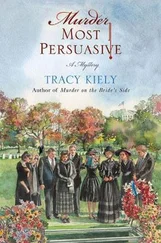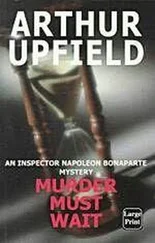“Hallo! Central? Our car’s just got back. Nobody about. The whole district seems quiet as the grave. All the same, we’ve sent out a patrol.”
How was Lecœur to classify that one? Unwilling to admit defeat, he put a little cross in the column on the extreme right headed “Miscellaneous.”
“Is there any coffee left?” he asked.
“I’ll make some more.”
The same lamp lit up again, barely ten minutes after the first call.
“Javel? What’s it this time?”
“Same again. Another glass broken.”
“Nothing said?”
“Not a word. Must be some practical joker. Thinks it funny to keep us on the hop. When we catch him he’ll find out whether it’s funny or not!”
“Which one was it?”
“The one on the Pont Mirabeau.”
“Seems to walk pretty quickly, your practical joker!”
There was indeed quite a good stretch between the two pillars.
So far, nobody was taking it very seriously. False alarms were not uncommon. Some people took advantage of these handy instruments to express their feelings about the police. “ Mort aux flics! ” was the favorite phrase.
With his feet on a radiator, Janvier was just dozing off when he heard Lecœur telephoning again. He half opened his eyes, saw which lamp was on, and muttered sleepily. “There he is again.”
He was right. A glass broken at the top of the Avenue de Versailles.
“Silly ass,” he grunted, settling down again.
It wouldn’t be really light until half past seven or even eight. Sometimes they could hear a vague sound of church bells, but that was in another world. The wretched men of the flying squad waiting in the cars below must be half frozen.
“Talking of boudin —”
“What boudin ?” murmured Janvier, whose cheeks were flushed with
sleep.
“The one my mother used to—”
“Hallo! What? You’re not going to tell me someone’s smashed the glass of one of your telephone pillars? Really? It must be the same chap. We’ve already had two reported from the Fifteenth. Yes, they tried to nab him but couldn’t find a soul about. Gets about pretty fast, doesn’t he? He crossed the river by the Pont Mirabeau. Seems to be heading in this direction. Yes, you may as well have a try.”
Another little cross. By half past seven, with only half an hour of the night watch to go, there were five crosses in the Miscellaneous column.
Mad or sane, the person was a good walker. Perhaps the cold wind had something to do with it. It wasn’t the weather for sauntering along.
For a time it had looked as though he was keeping to the right bank of the Seine, then he had sheered off into the wealthy Auteuil district, breaking a glass in the Rue la Fontaine.
“He’s only five minutes’ walk from the Bois de Boulogne,” Lecœur had said. “If he once gets there, they’ll never pick him up.”
But the fellow had turned round and made for the quays again, breaking a glass in the Rue Berton, just around the corner from the Quai de Passy.
The first calls had come from the poorer quarters of Grenelle, but the man had only to cross the river to find himself in entirely different surroundings—quiet, spacious, and deserted streets, where his footfalls must have rung out clearly on the frosty pavements.
Sixth call. Skirting the Place du Trocadéro, he was in the Rue de Long-champ.
“The chap seems to think he’s on a paper chase,” remarked Mambret. “Only he uses broken glass instead of paper.”
Other calls came in in quick succession. Another stolen car, a revolver-shot in the Rue de Flandres, whose victim swore he didn’t know who fired it, though he’d been seen all through the night drinking in company with another man.
“Hallo! Here’s Javel again. Hallo! Javel? It can’t be your practical joker this time: he must be somewhere near the Champs Elysées by now. Oh. yes. He’s still at it. Well, what’s your trouble? What? Spell it, will you? Rue Michat. Yes, I’ve got it. Between the Rue Lecourbe and the Boulevard Felix Faure. By the viaduct—yes. I know. Number 17. Who reported it? The concierge? She’s just been up, I suppose. Oh, shut up, will you! No, I wasn’t speaking to you. It’s Sommer here, who can’t stop talking about a boudin he ate thirty years ago!”
Sommer broke off and listened to the man on the switchboard.
“What were you saying? A shabby seven-story block of flats. Yes—”
There were plenty of buildings like that in the district, buildings that weren’t really old, but of such poor construction that they were already dilapidated. Buildings that as often as not thrust themselves up bleakly in the middle of a bit of wasteland, towering over the little shacks and hovels around them, their blind walls plastered with advertisements.
“You say she heard someone running downstairs and then a door slam. The door of the house, I suppose. On which floor is the flat? The entresol . Which way does it face? Onto an inner courtyard— Just a moment, there’s a call coming in from the Eighth. That must be our friend of the telephone pillars.”
Lecœur asked the new caller to wait, then came back to Javel.
“An old woman, you say. Madame Fayet. Worked as charwoman. Dead? A blunt instrument. Is the doctor there? You’re sure she’s dead? What about her money? I suppose she had some tucked away somewhere. Right. Call me back. Or I’ll ring you.”
He turned to the detective, who was now sleeping soundly.
“Janvier! Hey, Janvier! This is for you.”
“What? What is it?”
“The killer.”
“Where?”
“Near the Rue Lecourbe. Here’s the address. This time he’s done in an old charwoman, a Madame Fayet.”
Janvier put on his overcoat, looked round for his hat, and gulped down the remains of the coffee in his cup.
“Who’s dealing with it?”
“Gonesse, of the Fifteenth.”
“Ring up the P. J., will you, and tell them I’ve gone there.”
A minute or two later, Lecœur was able to add another little cross to the six that were already in the column. Someone had smashed the glass of the pillar in the Avenue d’Iéna only one hundred and fifty yards from the Arc de Triomphe.
“Among the broken glass they found a handkerchief flecked with blood. It was a child’s handkerchief.”
“Has it got initials?”
“No. It’s a blue-check handkerchief, rather dirty. The chap must have wrapped it round his knuckles for breaking the glass.”
There were steps in the corridor. The day shift coming to take over. They looked very clean and close-shaven and the cold wind had whipped the blood into their cheeks.
“Happy Christmas!”
Sommer closed the tin in which he brought his sandwiches. Mambret knocked out his pipe. Only Lecœur remained in his seat, since there was no relief for him.
The fat Godin had been the first to arrive, promptly changing his jacket for the grey-linen coat in which he always worked, then putting some water on to boil for his grog. All through the winter he suffered from one never-ending cold which he combated, or perhaps nourished, by one hot grog after another.
“Hallo! Yes, I’m still here. I’m doing a shift for Potier, who’s gone down to his family in Normandy. Yes. I want to hear all about it. Most particularly. Janvier’s gone, but I’ll pass it on to the P. J. An invalid, you say? What invalid?”
One had to be patient on that job, as people always talked about their cases as though everyone else was in the picture.
“A low building behind, right. Not in the Rue Michat, then? Rue Vasco de Gamma. Yes, yes. I know. The little house with a garden behind some railings. Only I didn’t know he was an invalid. Right. He doesn’t sleep much. Saw a young boy climbing up a drainpipe? How old? He couldn’t say? Of course not, in the dark. How did he know it was a boy, then? Listen, ring me up again, will you? Oh, you’re going off. Who’s relieving you? Jules? Right. Well, ask him to keep me informed.”
Читать дальше












